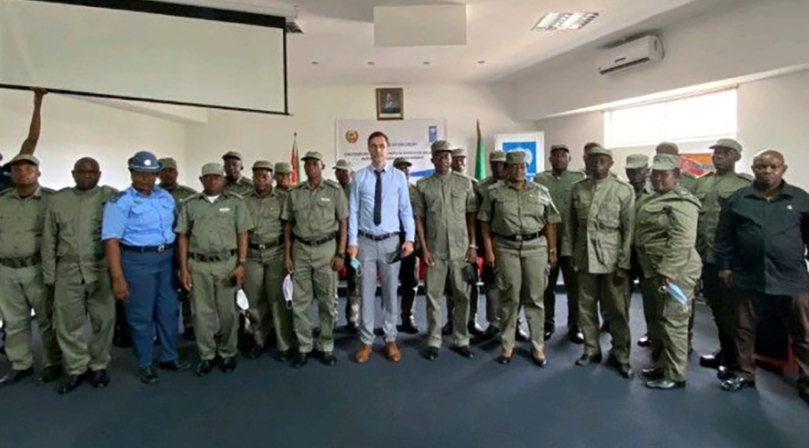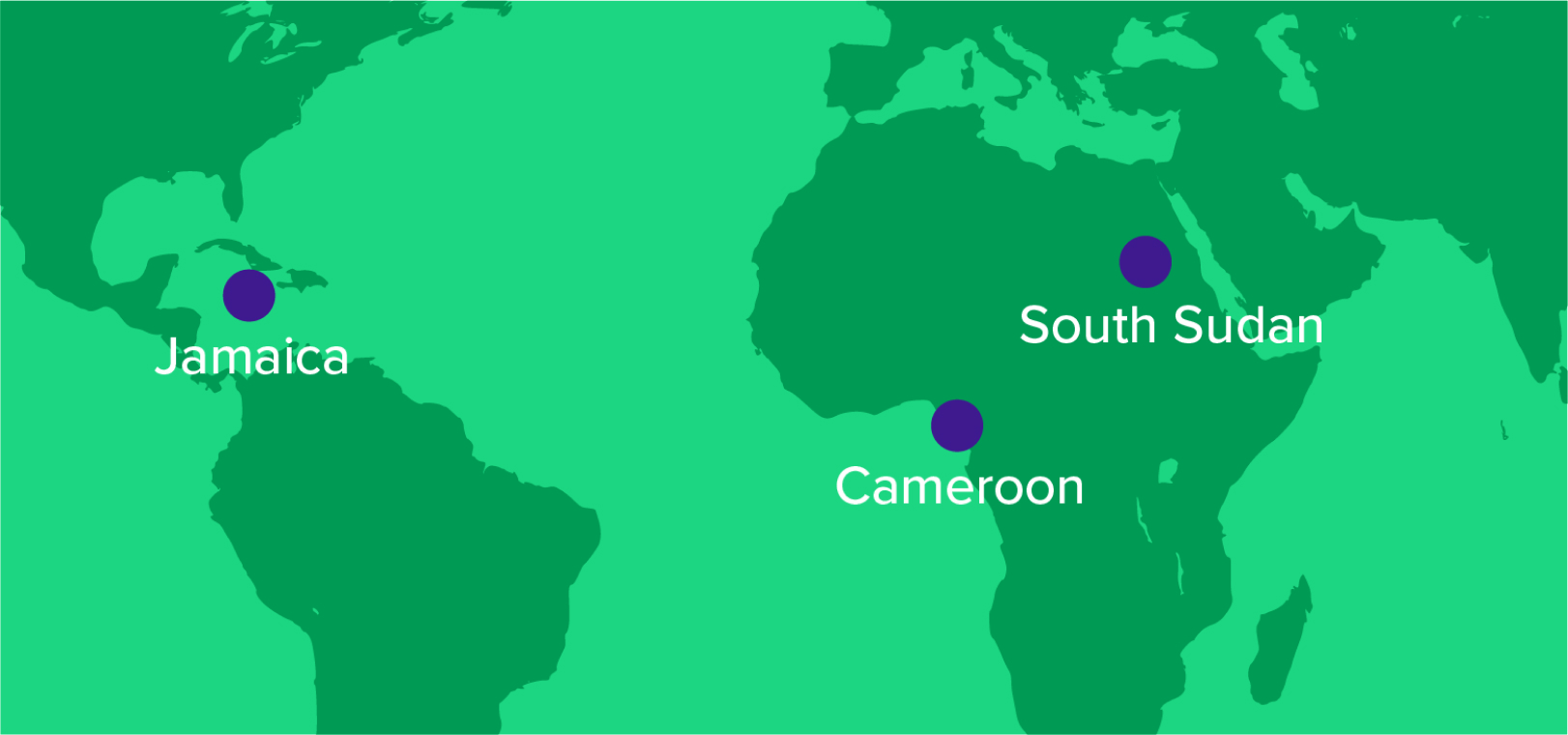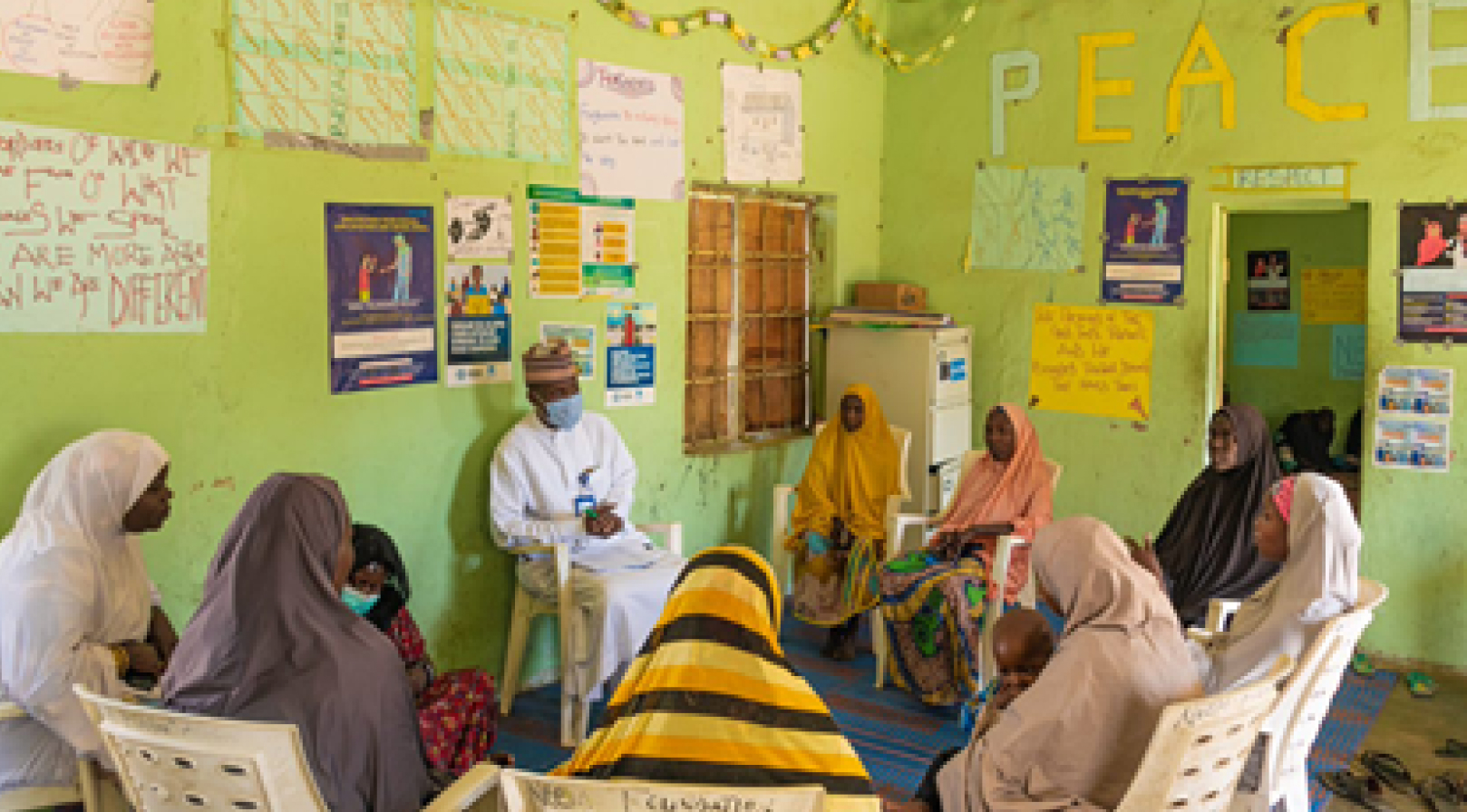Impact by Regions, Countries & Territories
UNDP’s Global Programme supports crisis-affected contexts across all regions to strengthen the rule of law and human rights. In this section, we present five regional overviews, detailing our priorities and approach depending on the context, as well as feature select country and territory results from 2021.
Five contexts from the list (Central African Republic, Democratic Republic of the Congo, Haiti, Mali and Yemen) illustrate the achievements of the Global Focal Point for the Rule of Law (GFP). In peacekeeping missions and transition settings, UNDP’s Global Programme works through the GFP to deliver integrated assistance with our UN partners.
GFP Global Focal Point Highlights
Political
Engagement
The rule of law is essential for sustainable peace and resilient economies, as well as for the prevention or recurrence of conflict. To prevent or address injustice, inequalities or democratic deficits, UNDP works with multiple stakeholders to operate in a way that is consistent with the rule of law and creates opportunities for all individuals to exercise their rights and access justice.
Institution
Building
The importance of strong institutions is more evident than ever as countries and communities respond to disruption, whether because of public health restrictions, climate change or political upheaval. Limitations on public gatherings and travel have revealed the need for institutions that are resilient to disruption.
Community
Security
2021 was a pivotal year that saw various developments affecting peace and security around the world. Civic space continued to shrink and the social contract between states and citizens was increasingly challenged, particularly during and after the response to the COVID-19 pandemic. Facing distressing consequences of climate change, states and communities are forced to manage more cross-border conflicts, triggered by the displacement of people seeking increasingly scarce resources.
Human Rights
Systems
The scope of human rights challenges is widening, from eroded public trust and shrinking civic space to ongoing inequality and human rights impacts in the socio-economic repercussions of the COVID-19 pandemic, and emerging risks in the digital sphere. National human rights institutions (NHRIs), along with other human rights defenders, are facing rising and sophisticated forms of reprisals for carrying out their work.
Access to
Justice
Sustainable Development Goal 16 (Peace, Justice and Strong Institutions) of the 2030 Agenda highlights the importance of access to justice for all for the development of peaceful and inclusive societies. Meaningful access to justice can only be achieved when people know their rights, have the opportunities, agency and capacities to claim them, and have access to independent, inclusive and people-centred justice systems that will respond in a timely, fair and effective manner.
Transitional
Justice
Without justice, there can be no lasting peace. In post-conflict, crisis-affected and fragile contexts, truth-seeking initiatives and reconciliation efforts are essential to bring peace to affected communities. The COVID-19 pandemic has slowed down transitional processes as states prioritized their response to the health crisis and measures to support the economy.
Gender
Justice
In 2021, the continued erosion of democracy and the spread of authoritarian trends in politics in many parts of the world contributed to a backlash against women’s rights. The COVID-19 crisis has reversed some of the hard-won gender parity gains by exacerbating pre-existing inequalities and power imbalances. It has also caused a dramatic increase in sexual and gender-based violence (SGBV). All these challenges have been particularly acute in conflict, fragile and crisis-affected settings.
Innovation
New ideas and new strategies are critical to building sustainable and effective development approaches that really meet people’s needs. Technologies and globalization raise new human rights concerns and threaten the rule of law. Responses to the COVID-19 pandemic continue to limit people’s access to basic services. UNDP connected expertise across the globe to learn and adapt. Creating a culture of curiosity and experimentation, these efforts ensured that local needs and expertise were combined with emerging models to bring strategic thinking to people-centred development goals.


Overview
2021 was a pivotal year that saw various developments affecting peace and security around the world. Civic space continued to shrink and the social contract between states and citizens was increasingly challenged, particularly during and after the response to the COVID-19 pandemic. Facing distressing consequences of climate change, states and communities are forced to manage more cross-border conflicts, triggered by the displacement of people seeking increasingly scarce resources.
In 2021, UNDP continued to support government institutions, civil society, communities and individuals in their efforts to address insecurity. In Armenia, CAR, the Caribbean region, Lebanon, The Gambia, Ukraine and Yemen, UNDP undertook efforts to strengthen the institutional capacities of the security sector and its relationship with people and communities. Through UNDP support the democratic oversight of the security sector was reinforced in Somalia and Tunisia. UNDP implemented projects to empower women and youth to join the security forces and to actively participate in the security sector reform in Burkina Faso, Kosovo*, Iraq and the Western Balkan countries. Finally, UNDP supported the return of displaced persons, the reintegration of ex-combatants and the control of illegal flows of arms and ammunitions in the Sahel, Lake Chad Basin, Great Lake Region, South-Eastern Europe, Iraq, Libya and the Democratic Republic of the Congo (DRC).
UNDP continued its endeavor to better integrate a people-centred approach to security (PCS) in its programmes. Following its partnership with Sweden’s Folke Bernadotte Academy on a thought paper on people-centred approach to security and the launch of an Advisory Group on PCS, UNDP is conducting a stocktaking exercise to review lessons learned and best practices, and to develop recommendations on integrated programming, inclusiveness and localized solutions.
- *References to Kosovo shall be understood to be in the context of Security Council resolution 1244 (1999).

SALIENT:
the saving lives entity
SALIENT is a UN funding facility implemented in partnership with the UN Office of Disarmament Affairs (UNODA) and is financially housed in the UN Peacebuilding Fund. It is dedicated to supporting Member States in tackling armed violence and illicit small arms and light weapons as part of a comprehensive approach to sustainable security and development.
To launch SALIENT implementation in 2021, three pilot countries were selected by its programme coordination team in close cooperation with UN Country Teams in Cameroon, Jamaica and South Sudan. Consultations with governmental and non-governmental stakeholders classified the issue of firearms proliferation in Jamaica as both supply and demand driven, and revealed a complex relationship between the social, economic, political, geographic and psychosocial nature of crime and criminality within the country. Accordingly, SALEINT funded the “Reducing Small Arms and Light Weapons in Jamaica” project to be implemented in 2022.

In Cameroon, promoting security for women and youth through arms control is a steppingstone to tackling the illicit proliferation of small arms and light weapons (SALW) and contributing to the country’s sustainable peace and development. SALIENT provided funding for an initiative targeting SALW issues that affect women and youth specifically, with strong support from the Government of Cameroon.
Finally, in South Sudan, where an estimated 600,000 firearms circulate amongst the civilian population, a Voluntary Civilian Disarmament Strategy (VCDS) was put in place to tackle the problem of illicit SALW and ammunition. Through support to this initiative, SALIENT in South Sudan will advance non-violent approaches to addressing illicit SALW, in line with UN standards.
Disarmament, Demobilization and Reintegration (DDR): addressing mass surrenders in Nigeria
UNDP has leveraged its global positioning on Disarmament, Demobilization and Reintegration (DDR) through its work in Nigeria. The scope of this work has recently expanded given mass surrenders of individuals associated with non-state armed groups including Jama’atu Ahlis Sunna Lidda’awati Wal-Jihad (JAS) and Islamic State West Africa Province (ISWAP), also referred together as Boko Haram, particularly in Borno State in North East Nigeria. Significant changes started to be witnessed in June 2021 and have continued at a steady pace ever since. Those surrendering include both alleged individuals associated with Boko Haram as well as many who were abducted, forced to work with them, and individuals previously living in areas under their control. Nevertheless, challenges from the longstanding conflict, including protracted displacement, remain a concerning factor.
The Government of Nigeria approached the Regional Stabilization Facility (RSF) and requested UNDP’s support to leveraging its expertise on dedicated interventions for reconciliation and reintegration, and to provide quality technical advice to the Borno State Government including for the development of an integrated strategy. The Borno State model to address mass surrenders, as a phenomenon of national and regional significance, was therefore supported. Technical assistance was provided to seek durable solutions that would elevate the issue to the regional and global political level.
UNDP’s support for the design of the Borno Strategy contributed to the development of a three-year National Action Plan elaborated within the Presidential Committee on Repatriation, Return and Settlement of Displaced Persons in the Northeast. The work was inaugurated by the President of Nigeria, under the Chairpersonship of the Vice President of Nigeria and co-chairpersonship by the Governor of Borno State. The committee is seeking, inter alia, to elaborate a plan to strengthen existing programmes for repentant Boko Haram members (Operation Safe Corridor (OPSC) on one hand and Borno Model on the other).

